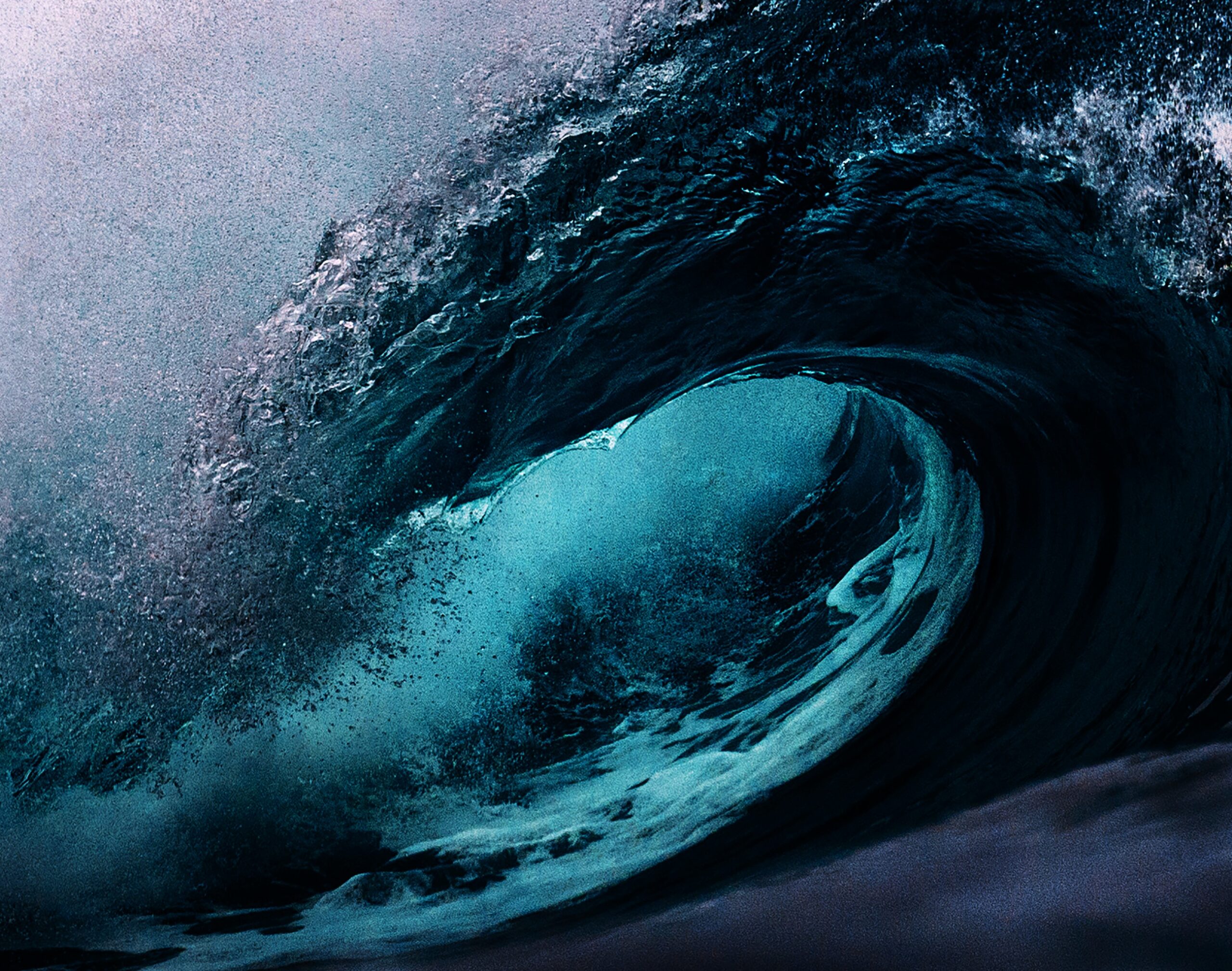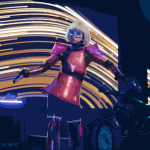Ryan Derenberger is a freelance journalist and editor, a Journalism and AP Language teacher at Whitman HS in Bethesda, MD, and the founder of 'The Idea Sift.' He also serves on the board of directors for student journalism nonprofit 'Kidizenship.'
Published: June 30th, 2020 at 9:43 pm EDT
Last updated: May 5th, 2021 at 9:01 pm EDT
Ideas are born.
They scurry, they live on our breath, and on our synapses’ firings. They exist in motion. They amend, adapt.
Ideas change and slow, hibernating in our quieter humans. They pounce, issuing from our loudest. Ideas express through the filters of our cultures, and those cultures amass a gravity, bending ideas.
And so we watch what we call some of our favorite idea clusters — television shows — as they surprise and awe us, as they introduce us to new perspectives, jettisoning detail after detail in order to arrive at resolution for those to whom we’ve come to feel close, having watched their dramas unfold nearly religiously.
The writers of these shows, they get a renewal notice for another season, and the once-lively body of ideas begins to decompose, cell by cell.
It’s the rare show whose characters are so enigmatic that they sustain our attention permanently. Character swaps help (see: Grey’s Anatomy), as do seasons’ worth of long-term specifics already handled, slowly simmering well prior to the television rights ever being sold, and then unfolded with a great deal of patience (see: the early seasons of Game of Thrones, Martin’s novelization minutiae realized).
But ideas falter if you flick them for too long. They bastardize, sometimes quickly, depending on the types of idea crowds they’re raised by.
And there is no idea more backwards than being so completely invested in a show only to become angry when characters whom writers made you love suddenly feel, finally, inevitably, a bit out of place. A bit “wrong.”
The reality: the narrative arcs are done, the characters self-actualized — but we demanded more anyway.
Four seasons and some-odd episodes later and not even the Fonz should hit the jukebox once again. You at least have to change the noun. He hit the “jump.”
In a post-scarcity world, would writers welcome the opportunity for a sixth, seventh or tenth season, them trying to conjure life from shriveled and used, dead idea bodies? Would these writers not just resolve the old set of fantasies narratively once and for all, and move on to new narratives to experience vicariously?
How many of our habits, TV-related or otherwise, are obsessions, and how often does such an obsession grant limped life to expiring ideas?
Idea addicts, we are. We go into withdrawal when the old ideas with which we once fell in love no longer move us. Writers, keeping their jobs, must manifest a magician’s act on stage, misdirections, for it’s the rare writer who is so sought after they can end shows without any opposing pressure to keep their healthcare plans, their roofs above their heads, their food under each roof.
They jump sharks.
Just take for example Fred Fox Jr., one of the writers of the proverbial “jump the shark” episode of Happy Days and what he so pragmatically wrote in a 2013 editorial for the L.A. Times, he one of the very writers from whom the words “shark” and some conjugation of the verb “jump” first expelled.
“It was the 91st episode and the fifth season,” Fox wrote. “If this was really the beginning of a downward spiral, why did the show stay on the air for six more seasons and shoot an additional 164 episodes? Why did we rank among the Top 25 in five of those six seasons?”
He judged his art’s worth based on its commercial success. By its ability to stay alive at any cost.
In a developed world still necessarily dominated by income, can you blame him?
Having viewed Happy Days as a child — but as a child of the 80s and 90s, watching on Nick at Nite — even I can tell you that the Fonz successfully jumping over marine life was likely not in the showrunners’ original pitch to ABC. No, the Fonz was a foil to the pre-Alleneque Richie Cunningham. The Fonz was what the audience, and their proxy Richie, wished they were: handsome, confident in front of ladies. He was white, male and in control.
He was happy, daily, while the other characters endured mild drama after mild drama.
Instead, in that first pitch was an idea, not unlike what the idea “Make America Great Again” achieves for people who brandish it. The pitch idea was about what genuinely were “happier days” for many of the adults watching then. What middle-class, happy kid who then turned into an adult with responsibility, wouldn’t see their more ignorant days as, well, more blissful than their current?
This youth idolization isn’t just common to Americans, nor to the ‘50s; it’s common to human culture, millennia old.
In simpler days than ours, your worth as a middle-class American given the right color of your skin, was obvious to you and required little critical thinking. Of course you were happier. You were simple, and for as long as simple remained at least partially interesting, then the corresponding ideas were able to hitchhike along, just a little bit further, always a little bit further to remain alive.
So the network executives order a pilot. Four seasons and some-odd episodes later and not even the Fonz should hit the jukebox once again. You at least have to change the noun. He hit the “jump.”
We should celebrate once-good ideas when their purposes end. For one, they deserve it. They perhaps worked for us before, or worked for our ancestors. They gave way to shelter and beneficial, if limited degrees of understanding. They delivered consistent food and care for our loved ones first. Memory made the ideas’ effects consistent; unconsciousness made them seem indestructible.
They’re not. They’re ideas. Of course they’re destructible. In fact, as with humans, death is in the DNA. Like ideas, we are hardwired with a “suggested use by” kind of expiration date — Rutger Hauer’s accelerated dilemma in Blade Runner, his mania an accurate metaphor for our own.
Sexual selection and consequence allow for more rapid choice and development of a species into continually fit forms, atom groupings running through a matrix of more atoms more successfully, or at least not destructively, compared to those of the previous generation.
Death, of ideas and organisms alike, is the “double-click” on a fitness firmware update that makes change more rapidly available than it would be otherwise. (Imagine the slow trod of some never-die humanoid with an iron memory, and worse, a culture acting as a deep and wide moat.)
Sure, maybe it’s a good thing, straight into 2020, that our memories are iron, that the moat runs.
Maybe it’s not. Each idea body’s presence won’t be valuable literally forever. Maybe we should celebrate the ideas that worked for so many of us for so long. Maybe distrust of thy neighbor was useful for a time. Maybe soon it won’t be.
I hear some of you: Maybe ideas and “idea bodies” are better off sticking around for a while even after their initial utility ends, just in case a new need (or a resurrected one) appears.
Do you also stash extra beers “just in case”?
These are the thoughts of addicts.
IDEA RENTALS
Let’s try another figurative route: Consider dropping old, used ideas of yours into the “returned idea slot,” rewound for the next set of eyes whether in our species or another. The memories of what we’ve experienced will stay with us, fear not, while another club member or a future one is now able to check out that idea.
There is value in understanding ideas as a vast, nonlinear web-of-a Blockbuster, sorted not by themes and genres, but by collegiate “idea majors.”
I don’t believe there are many ideas (at least not ones that are worthy of our excavating them) that can be universally held by all now-near eight billion of us. Consider how most of us interact with the ideas of another group we believe we must diametrically oppose. Assuming all of their ideas are fool’s gold as opposed to assuming that only some are, we miss out on partial wisdom and in turn partial wealths.
From these assemblies, some humans perch into reality and the time rip, explorers conscious.
Yet there are some idea-aisles that in fact can be rented out infinitely. They remain largely untrodden, dust everywhere, aisles on “understanding race completely,” for instance, on “shared humanity.”
Video renters and remote-clickers, we are already channel surfers, jonesing for the right wave in an endless summer of idea creation. Some of us barely ride the tide of present ideas by getting tossed around mostly, tumbleweeds of the sea, while others forge footing from a few present ideas, partnered symbiotically, with nothing left to carry but those ideas themselves.
From these assemblies, some humans perch into reality and the time rip, explorers conscious.
Ideas like “always reassess your ideas,” or “see yourself in others.” Ideas like “I have enough resources,” and “I don’t need anything else right now” — surfer philosophy realized.
Else, you try to carry that which is unnecessary, and not all at once, but eventually, yes, you become heavy. The crashes are more painful and disturbing when they push a weighted self into the reef.
Imagine the feeling of weightlessness by contrast if we were to just “let go” of the old ideas we’ve been taking energy to nurse still, the cessation of our grafting them onto situations for which they are no longer applicable, the cessation of our coming out worse thanks to expired idea-habits, ourselves the losers to others’ Nash equilibriums.
Watch surfing itself unfold. Imagine what it must be like to ride ideas like a surfer rides waves. Envision practically the person you would have to become, to do so skillfully, consistently. What would it feel like to be that person? What do you need to do become that person?
What do you need to let go? Try it for five seconds.
The percolating idiom “Jump the Shark” isn’t the war horn’s cry to fight harder for a show’s longevity; it’s the white flag from the enemy. It’s the sign that we as a conscious species won an idea battle, crossing off an aisle. We moved into a new realm of understanding — with Happy Days, a realm where American exceptionalism and so-so root beers on tap were ever-so-slightly less interesting to us.
Idea: Imagine a different, better-for-all version of America than Richie’s. Imagine a version of America so rich, so successful, so internally cooperative that it would be our choice, not a tough-love necessity, to deny the poor at least a split-level rancher and the occasional strawberry milkshake.
Idea: Imagine if we were so ahead on medical research and life-extension technology that our best minds instead dedicated years to developing the most palette-perfect root beer in the universe. 20 years, UPenn grants. Thousands of research papers. And then, there it is at your grocery store.
Now that’s happy.
I want something better than what American exceptionalism was for white people. I want something better for everyone. Don’t you?
Don’t get angry at writers and thinkers whose idea bodies began decomposing; get angry, at a lifestyle of “kicking the idea.”
Survival of the fittest ideas is the way of the universe in the dimensions we experience, regardless of when the universe began, regardless of your cosmology, so good luck fighting against it. Dawkins inadvertently started this “memetic theory,” then witnessed it debate itself into a simmering homeostasis.
Paired with the right metaphor or three, Dawkins’ take that ideas (“memes”) function as organisms still has legs in advancing our understanding of what brands of cognition are useful, either to ourselves or to others.
The natural economies of exchange that have arisen in our universe are, in order, exchanges of inorganic matter, then organic matter, exchanges of conscious ideas, then goods and services, then currency for those goods and services, and finally ideas once again, perhaps even uniquely one day. This enumeration, this outlining is the cerebral corollary to the famous evolution diagram of spine-straightening apes, the “March of Progress.” We are moving from the known penultimate rung of currency, straight to the us of right now, the new ultimate rung of idea exchange more and more exclusively.
Idea exchanges will found the economy of the future, and indeed, they already are. Physical resources become less and less scarce as technology automates. Whether largely complete in 500 or 5,000 years, such a future continues to actualize as we narrowly avoid asteroids, nuclear holocaust and other assorted planetary meltdowns.
When a resource becomes self-sustaining, or so plentiful that everybody will always “have one now,” the best idea is to be thankful for the surplus, rolling the resource and its corresponding idea body into syndication, letting other more now-relevant ideas fill the fighting ring of the present.
The self-destructive, Buddhist sand artist, they who teach themselves detachment through erasure, is right about at least one thing: there is value to learning how to erase. There is also value in learning how to create or renew sustainable ideas that benefit our lives, allowing us to ride our words and brainwaves both upright and flexed in the knee.
Which of yours do you harbor safely? Which do you lock in your basement, throwing them food scraps and buckets?
One sustained idea I’d like everyone on the planet to feel is the idea that “I am comfortable,” a critical goal if there ever were one. How much personal discomfort, that others then find ways to fling at you, is actually an unnecessary, idea-clutching wail, a delaying healthier ideas from taking form? Do you do well with conflict de-escalation when you’re hungry? Or when you just found out that your job is forcing you to go part-time when your rent’s past due?
I’m an idea capitalist. Let discomfort air, through TV shows, films or otherwise. Believe that discomfort is real for all humans. Solve the discomforts you recognize for yourself first once and for all, and from then on for as many other humans as you can, helping them solve theirs, lest others’ and their sleepy tidal crashings continue to knock you towards the reefs regardless of how well you shred.
And that’s just an evidenced plan for less conflict in your life. Imagine how powerful those same aims could be if you were so comfortable already that you wished similar comfort for even your old enemies, no scarcity felt.
So I promote the idea of “comfort first,” currently. I hope there comes a day when it’s so widely internalized that I may jettison it for good.
Most of the ideas of Happy Days and the decades that inspired it held a great deal of comforting value for us for a long time. Some of the basic ideas about friendship and learning to trust, and even the idea of savoring the little things, still do have great value. These are whole genres in our Blockbuster of ideas, completed and, if we’re fortunate, internalized. Thank you, ‘50s America.
At the same time, those years and some of those ideas were painful to others of all races and creeds, and often painful for women as well. The basic “put yourself first always, whether others’ good is your own or not” was personally fulfilling and accrued great resources, but it runs heavily counter to “love thy neighbor,” a Bible-thumper’s adage as much as it is a Futurist’s.
Both the ‘50s and ‘60s — heyday fodder — saw Black Americans lynched or marching in declarations of nonviolence only to be beaten and sprayed with fire hoses.
Prefer your heydays from another era? In the ‘30s and ‘40s, one man’s hate found such warm welcome in a place of power, that a world war broke out. That war was so serious that we Americans felt compelled to perfect a new idea, the idea to split an atom and kill nearly a hundred thousand humans with one bomb. (The goal, then, was not sustainable energy plants, a salvaged descendant.)
Our Pacific campaign was so successful by 1945, negotiations of Japan’s surrender already underway, that we dropped that bomb, idea now invented and real, mainly as a show of strength according to our leaders at the time, who now express a great deal of remorse over the decision to let the idea blossom into a mushroom cloud.
We are gorillas beating our chests. Ideas, kicked, and kicked, and kicked around.
Which of yours do you harbor safely? Which do you lock in your basement, throwing them food scraps and buckets?
How sure are you that each of your ideas is helpful, for you and yours?
Yours, these very ideas that engage you as your eye traces the screen, they are born to be deployed to varying degrees as needed, and then returned to the cloud of concept, rewound as courtesy. They are born to become exaggerated and get canceled.
Let them. To all you idea-writers reading — that’s you, humans — please, notice when a Fonz jumps a shark. Celebrate the occasion. Balloons are probably past due.
Ideas that were useful for us in the past will remain useful indefinitely.
THE SIFT
Many of our current, treasured ideas have roots in times of great scarcity and survival. It’s not only helpful to others around you to let some of these ideas go; it’s also the selfish move to let them go, advantaging, you.
IDEAS SIFTED: Happy Days, Game of Thrones, Grey’s Anatomy, post-scarcity economies, Blade Runner, Blockbuster Video, surfer philosophy, Endless Summer, Dawkins’ “memetics,” Buddhism, nuclear war.
Ryan Derenberger is a freelance journalist and editor, a Journalism and AP Language teacher at Whitman HS in Bethesda, MD, and the founder of 'The Idea Sift.' He also serves on the board of directors for student journalism nonprofit 'Kidizenship.'












